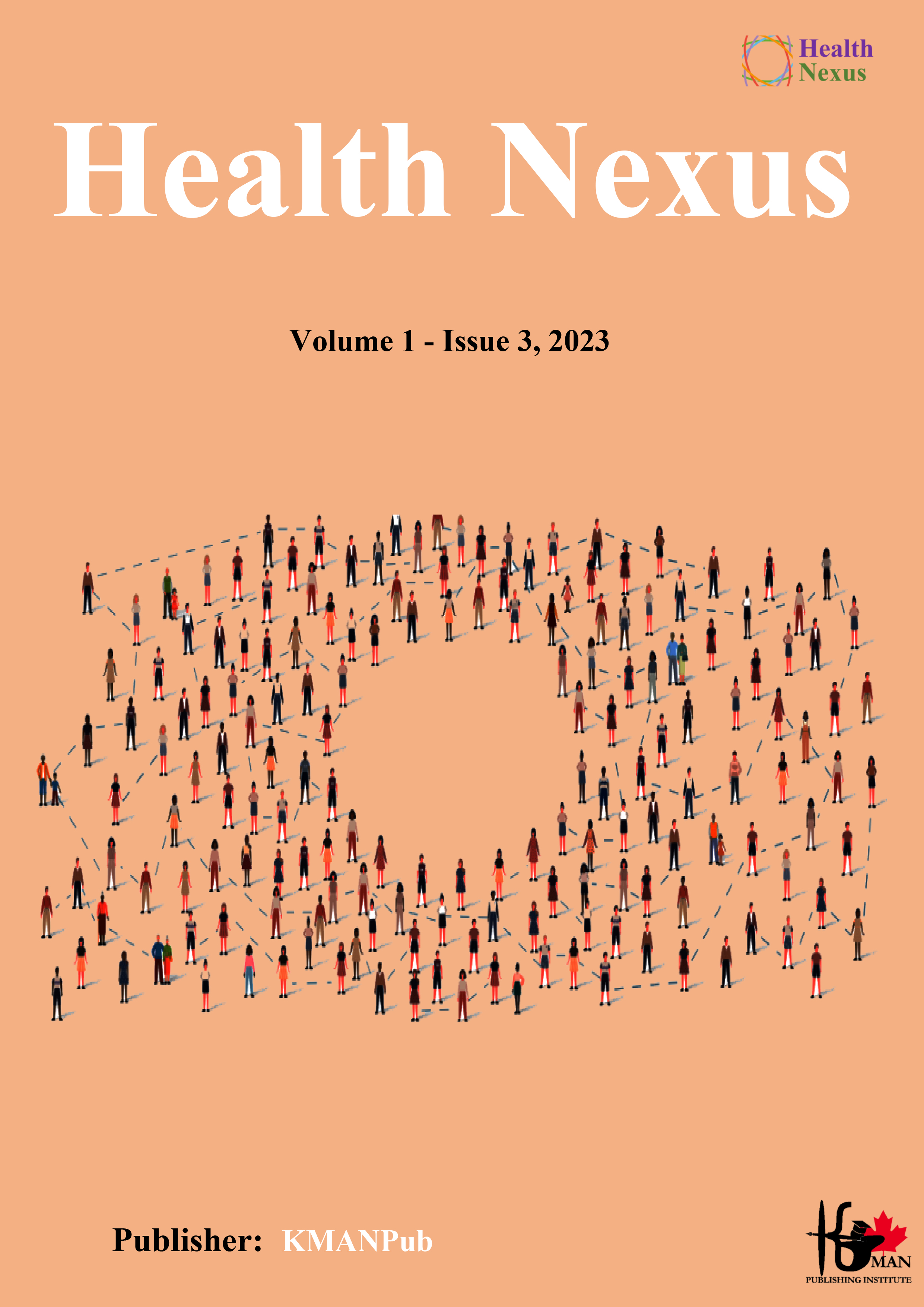The Impact of Occupational Therapy on Motor Function and Activities of Daily Living in Stroke Survivors
Keywords:
Occupational Therapy, Motor Function, Activities, Daily Living, Stroke SurvivorsAbstract
The current study aims to examine the impact of occupational therapy on motor function and activities of daily living in stroke survivors. It presents a quasi-experimental study assessing the effect of occupational therapy on enhancing motor function and ADLs in stroke survivors. The study involved 30 participants divided into control and experimental groups. The measures include Fugl-Meyer Assessment (FMA) and Katz Index of Independence in Activities of Daily Living (ADL). Significant improvements were observed in the experimental group in both motor function and ADLs, as shown by ANOVA and post-hoc tests. The findings highlight the efficacy of occupational therapy in facilitating recovery and improving quality of life post-stroke, integrating traditional approaches with innovative technologies. The study also shows the necessity of occupational therapy in stroke rehabilitation and its holistic impact on physical recovery and patient well-being. For healthcare systems, these findings show the importance of allocating resources towards occupational therapy services for stroke survivors. This includes investing in advanced rehabilitation equipment and ensuring adequate staffing. Additionally, healthcare systems should consider developing collaborative models of care that involve multidisciplinary teams, including occupational therapists, to provide comprehensive and holistic treatment for stroke survivors.
Downloads
References
1. Yoon H, Park C, editors. Effectiveness of Proprioceptive Body Vibration Rehabilitation on Motor Function and Activities of Daily Living in Stroke Patients with Impaired Sensory Function. Healthcare; 2023: MDPI. [PMID: 38200941] [PMCID: PMC10779045] [DOI]
2. Choi W, editor Effects of cognitive exercise therapy on upper extremity sensorimotor function and activities of daily living in patients with chronic stroke: A randomized controlled trial. Healthcare; 2022: MDPI. [PMID: 35326907] [PMCID: PMC8951390] [DOI]
3. Malik AN, Tariq H, Afridi A, Azam Rathore F. Technological advancements in stroke rehabilitation. Journal of Pakistan Medical Association. 2022;72(8):1672-4.
4. Gladstone DJ, Danells CJ, Black SE. The Fugl-Meyer assessment of motor recovery after stroke: a critical review of its measurement properties. Neurorehabilitation and neural repair. 2002;16(3):232-40. [PMID: 12234086] [DOI]
5. Hijikata N, Kawakami M, Ishii R, Tsuzuki K, Nakamura T, Okuyama K, Liu M. Item difficulty of Fugl-Meyer assessment for upper extremity in persons with chronic stroke with moderate-to-severe upper limb impairment. Frontiers in neurology. 2020;11:577855. [PMID: 33304304] [PMCID: PMC7701100] [DOI]
6. Hernández ED, Forero SM, Galeano CP, Barbosa NE, Sunnerhagen KS, Murphy MA. Intra-and inter-rater reliability of Fugl-Meyer Assessment of Lower Extremity early after stroke. Brazilian Journal of Physical Therapy. 2021;25(6):709-18. [PMID: 33358073] [PMCID: PMC8721065] [DOI]
7. Wallace M, Shelkey M. Katz index of independence in activities of daily living (ADL). Urol Nurs. 2007;27(1):93-4.
8. Arik G, Varan HD, Yavuz BB, Karabulut E, Kara O, Kilic MK, et al. Validation of Katz index of independence in activities of daily living in Turkish older adults. Archives of gerontology and geriatrics. 2015;61(3):344-50. [PMID: 26328478] [DOI]
9. Hildebrand MW, Geller D, Proffitt R. Occupational Therapy Practice Guidelines for Adults With Stroke. The American Journal of Occupational Therapy. 2023;77(5):7705397010. [PMID: 37862268] [DOI]
10. Nilsen D, Gillen G, Arbesman M, Lieberman D. Occupational therapy interventions for adults with stroke. The American Journal of Occupational Therapy. 2015;69(5):6905395010p1-p3. [PMID: 26356668] [DOI]
11. Rodríguez-Hernández M, Polonio-López B, Corregidor-Sánchez A-I, Martín-Conty JL, Mohedano-Moriano A, Criado-Álvarez J-J. Effects of specific virtual reality-based therapy for the rehabilitation of the upper limb motor function post-ictus: randomized controlled trial. Brain Sciences. 2021;11(5):555. [PMID: 33924767] [PMCID: PMC8145650] [DOI]
12. Friedmann AJ. Proprioception and developmental motor training: A new treatment for chronic-phase stroke patients: University of Missouri-Saint Louis; 2014.
13. Adams RJ, Lichter MD, Ellington A, White M, Armstead K, Patrie JT, Diamond PT. Virtual activities of daily living for recovery of upper extremity motor function. IEEE transactions on neural systems and rehabilitation engineering. 2017;26(1):252-60. [PMID: 29324411] [DOI]
14. Fathi S, Taghizadeh G, Azad A, Behzadipour S, Shams Hafshejani D, Zare A, Ghorbanpour Z. Effects of upper extremity coordination exercises based on fatigue prediction on upper extremity sensory-motor functions in chronic stroke survivors. Iranian Rehabilitation Journal. 2022;20:17-28. [DOI]
15. Zhao L, Guo B, Gao Y, Zhu Y. Effects of home-based motor imagery training on lower extremity function in chronic stroke patients: a randomized, controlled trial. Chinese Journal of Practical Nursing. 2017:1125-30.
16. Ghrouz A, Marco E, Muñoz-Redondo E, Boza R, Ramirez-Fuentes C, Duarte E. The effect of motor relearning on balance, mobility and performance of activities of daily living among post-stroke patients: Study protocol for a randomised controlled trial. European Stroke Journal. 2022;7(1):76-84. [PMID: 35300258] [PMCID: PMC8921790] [DOI]
17. Smith RC. Making the biopsychosocial model more scientific—its general and specific models. Social Science & Medicine. 2021;272:113568. [PMID: 33423810] [DOI]
Downloads
Additional Files
Published
License
Copyright (c) 2023 Hamidreza Majlessi Koupaei (Corresponding Author); Rozina Farista (Author)

This work is licensed under a Creative Commons Attribution-NonCommercial 4.0 International License.
















